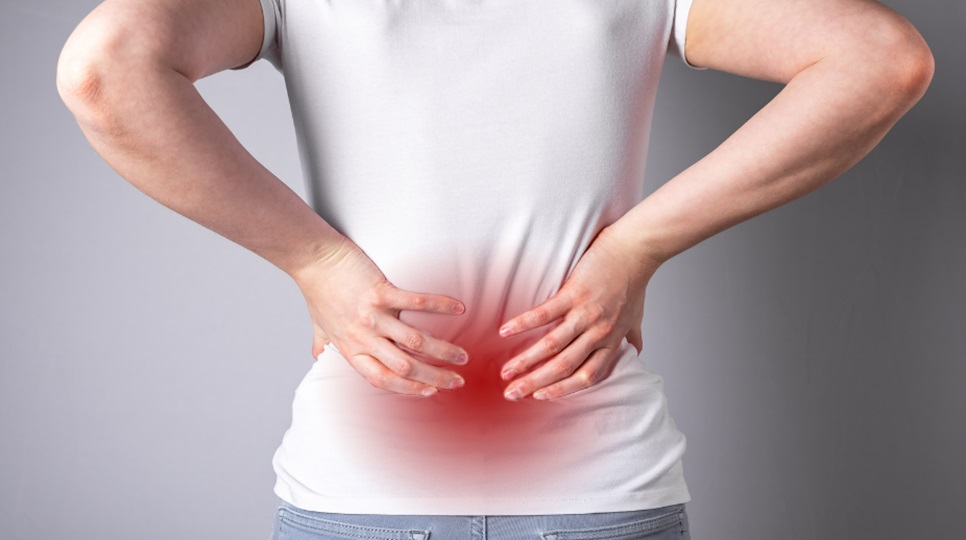
Lower Back Pain Causes: 5 Reasons for Sudden Chronic Pain
Lower back pain is a common health issue that affects people of all ages. It can range from mild distress to a debilitating condition that significantly impacts one’s daily life. There are various causes of lower back pain, and it can be challenging to pinpoint the exact reason for sudden chronic pain. In this article, we will discuss five common causes of lower back pain and how to manage them effectively.
1. Poor Posture
In today’s modern lifestyle, many people spend long hours sitting in front of a computer or hunched over their smartphones. This prolonged sitting can lead to poor posture, which can put pressure on the muscles and ligaments in the lower back. Over time, this can cause strain and tension, resulting in chronic lower back pain.
To enhance posture and prevent lower back pain, it is essential to maintain a proper sitting position with your feet flat on the ground and your back supported. Taking regular breaks to stretch and move around can also help alleviate any built-up tension in the muscles.
Maintaining proper posture not only helps prevent back pain but can also improve your overall well-being. For more tips on relieving back pain and improving posture, check out this guide on back pain management in Singapore.
2. Muscle Strain
Muscle strain is a common cause of sudden lower back pain. It can occur due to overexertion, lifting heavy objects, or sudden twisting movements that put excessive strain on the muscles in the back. This can lead to inflammation and pain in the affected area. If the strain is severe, it can even cause muscle spasms and limit movement.
Managing muscle strain involves resting the affected area and applying ice to reduce inflammation. Gentle stretches and gradually increasing activity levels can also help in the recovery process. It is essential to avoid strenuous activities that can aggravate the injury further.
3. Herniated Disc
A herniated disc, known as a slipped disc, occurs when the soft cushioning between the vertebrae in the spine slips out of place. This can put pressure on the nerves in the back and cause pain and discomfort. Herniated discs are often caused by age-related wear and tear or sudden trauma.
Treatment for a herniated disc may include physical therapy, medication for pain management, or, in severe cases, surgery. It is crucial to consult a doctor for lower back pain relief in Davie if you suspect a herniated disc.
4. Arthritis
Arthritis is a common condition that affects the joints, including those in the spine. Osteoarthritis and rheumatoid arthritis are two types of arthritis that can lead to lower back pain. Osteoarthritis happens when the cartilage between the joints breaks down and bones rub together. Rheumatoid arthritis involves inflammation and pain caused by the immune system attacking the joints.
To manage lower back pain related to arthritis, medication, physical therapy, and lifestyle changes like maintaining a healthy weight and doing low-impact exercises are necessary.
5. Structural Issues
Structural issues in the spine, such as scoliosis or a bulging disc, can also lead to chronic lower back pain. These conditions can be present from birth or develop later in life due to degeneration or injury. So, if you are wondering why you get pain in the lower back while running or performing other physical activities, it could be due to a structural issue. The misalignment of the spine and pressure on the nerves can cause discomfort and pain. Treatment for structural issues may include physical therapy, medication, or, in severe cases, surgery. It is essential to consult a doctor for proper diagnosis and treatment.
Wrapping Up
Lower back pain can significantly impact one’s quality of life. It is vital to determine the underlying cause of the pain and pursue appropriate treatment to manage it effectively. Maintaining good posture, avoiding strenuous activities, and incorporating regular exercise into your routine are some ways to prevent and alleviate lower back pain. However, if the pain persists or becomes severe, it is essential to consult a doctor for proper diagnosis and treatment. With the right approach, you can find relief from sudden chronic lower back pain and improve your overall well-being.
